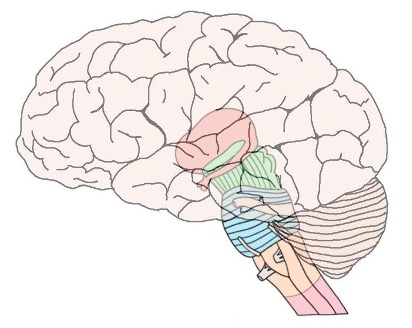
Temporomandibular joint (TMJ) dysfunction can present in adults and children with a variety of symptoms, affecting not only the jaw but also related structures like the head, neck, and ears. It may sometimes be subtle or mistaken for other conditions. If TMJ dysfunction is suspected, early evaluation is essential for appropriate evaluation, diagnosis, treatment, and to prevent long term or future compensations and complications.
Some Signs of TMJ Dysfunction in the Pediatric Population
Pediatric and infant temporomandibular joint (TMJ) dysfunction can present with a variety of symptoms, which may sometimes be subtle or mistaken for other conditions. Early identification and treatment are crucial for preventing long-term issues. Here are some common symptoms associated with TMJ dysfunction in infants and children:
- Difficulty Breastfeeding or Bottle-Feeding
- Infants may have trouble latching or maintaining a latch while feeding.
- Prolonged feeding times or frequent pauses during feeding due to discomfort.
- Inadequate weight gain, due to feeding difficulties.
- Excessive Crying or Irritability
- Unexplained fussiness or crying, particularly during or after feeding.
- General discomfort that may worsen when lying flat.
- Jaw Misalignment or Asymmetry
- Visible jaw or facial asymmetry.
- Difficulty in opening the mouth fully.
- A jaw that deviates to one side when opening or closing.
- Ear Pain or Fullness
- Complaints of ear pain without signs of infection.
- A feeling of fullness or pressure in the ears.
- Tugging or pulling at the ears, especially in younger children who cannot articulate pain.
- Headaches
- Recurrent headaches, particularly around the temples or forehead.
- Headaches that seem to coincide with jaw movements or chewing.
- Difficulty Chewing or Swallowing
- Pain or discomfort when chewing, even with softer foods.
- Avoidance of certain foods due to discomfort.
- Choking or gagging during meals.
- Limited Range of Motion in the Jaw
- Difficulty opening the mouth fully or moving the jaw side to side.
- Pain or discomfort when attempting to open the mouth widely (e.g., yawning).
- Clicking, Popping, or Grinding Sounds
- Audible clicking, popping, or grinding sounds when the child moves their jaw.
- Grinding of teeth (bruxism), which can occur during sleep or while awake.
- Behavioral Changes
- Changes in eating habits, such as refusal to eat certain foods or general appetite loss.
- Behavioral signs of pain, such as avoiding activities that involve jaw movement (e.g., speaking, eating, yawning).
- Disturbed Sleep Patterns
- Difficulty falling asleep or staying asleep due to discomfort.
- Restless sleep or frequent waking.
- Delayed Speech Development
- Delays in speech development due to discomfort or restricted jaw movement.
- Difficulty articulating certain sounds.
- Bruxism (Teeth Grinding)
- Frequent grinding of teeth, especially at night.
- Worn down or flattened teeth due to grinding.
- Postural Issues
- Changes in posture, particularly in the neck and head, as the child may adopt positions to relieve jaw discomfort.
These symptoms can vary in intensity and presentation, and not all children with TMJ dysfunction will exhibit all these symptoms. If TMJ dysfunction is suspected, early evaluation is essential for appropriate evaluation, diagnosis, treatment, and to prevent long term or future compensations and complications
Some Signs of TMJ Dysfunction in the Adult Population
Temporomandibular joint (TMJ) dysfunction in adults can manifest in a range of symptoms, affecting not only the jaw but also related structures like the head, neck, and ears. The symptoms can vary in severity and may be intermittent or chronic. Here are some common symptoms associated with adult TMJ dysfunction:
- Jaw Pain or Tenderness
- Pain or tenderness in the jaw joint area, which may worsen with jaw movement.
- Discomfort in the muscles controlling jaw movement.
- Difficulty or Pain When Chewing
- Pain while chewing, especially with hard or chewy foods.
- Avoidance of certain foods due to discomfort.
- Difficulty in opening the mouth wide.
- Jaw Locking or Limited Range of Motion
- The jaw may feel “stuck” or locked in an open or closed position.
- Limited ability to open the mouth fully or move the jaw side to side.
- Clicking, Popping, or Grinding Sounds
- Audible clicking, popping, or grinding sounds when opening or closing the mouth.
- These sounds may or may not be associated with pain.
- Facial Pain or Discomfort
- Pain that radiates to the face, neck, or shoulders.
- General discomfort or a feeling of tightness around the jaw and cheeks.
- Headaches
- Frequent headaches, particularly in the temples, forehead, or back of the head.
- Migraines or tension-type headaches that may be linked to jaw tension or clenching.
- Ear Pain or Fullness
- Earaches or a sensation of fullness or pressure in the ears.
- Ringing in the ears (tinnitus), which may be related to jaw issues.
- Pain that radiates from the jaw to the ear.
- Bruxism (Teeth Grinding)
- Grinding or clenching of teeth, often during sleep.
- Worn down, flattened, or chipped teeth as a result of grinding.
- Tooth sensitivity or pain due to excessive grinding.
- Neck and Shoulder Pain
- Stiffness or pain in the neck and shoulders, often associated with jaw clenching or poor posture.
- Tension in the upper back and shoulders.
- Dizziness or Vertigo
- Feelings of dizziness or lightheadedness, sometimes linked to inner ear issues caused by TMJ dysfunction.
- Change in Bite or Dental Alignment
- A noticeable change in how the upper and lower teeth fit together.
- Misalignment of the bite, sometimes causing difficulty in chewing or speaking.
- Fatigue in the Jaw
- A feeling of fatigue or tiredness in the jaw muscles, especially after talking, chewing, or yawning.
- Muscle spasms or cramping in the jaw.
- Swelling on One Side of the Face
- Swelling around the jaw joint or in front of the ear on one side of the face.
- Difficulty Swallowing
- Discomfort or pain when swallowing, sometimes due to tension in the jaw muscles.
- Emotional Stress or Anxiety
- Increased stress or anxiety can exacerbate symptoms, particularly jaw clenching and teeth grinding.
- Sensitivity to Sound
- Increased sensitivity to sounds, particularly those that cause vibration, like chewing or loud noises.
- Throat Pain
- A sensation of tightness or discomfort in the throat, which may be related to muscle tension.
Adults with TMJ dysfunction often experience a combination of these symptoms, which can significantly impact their quality of life. Early diagnosis and treatment can help manage symptoms and prevent further complications.
Featured Articles
View our articles on chiropractic technique, practice management, research and philosophy.




